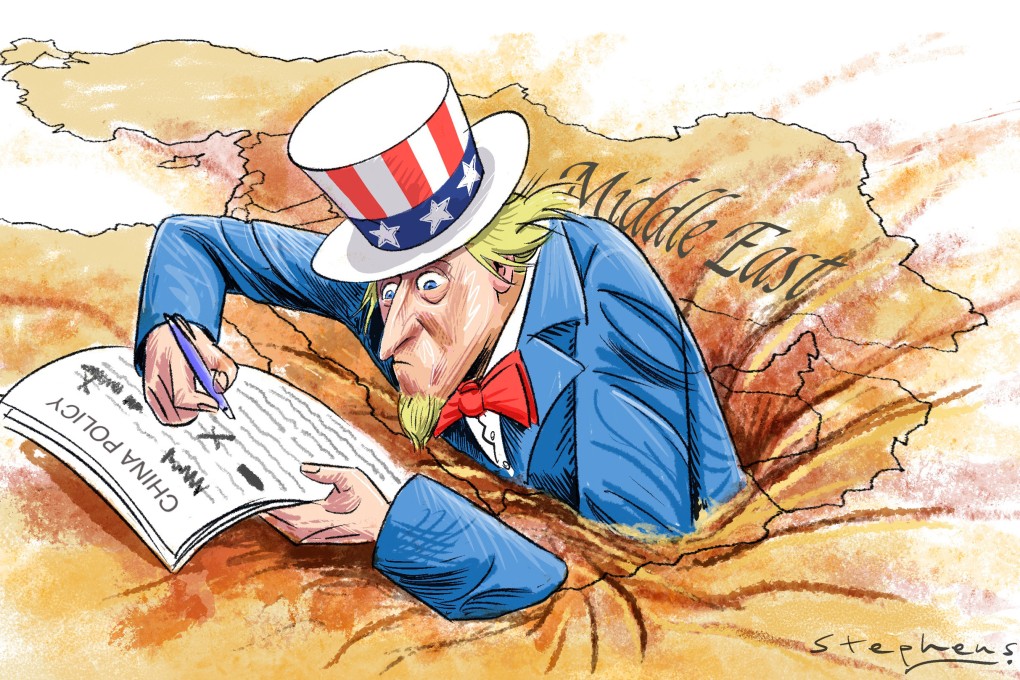Advertisement
Opinion | Why Middle East quagmire could be key to easing US-China tensions
- The Biden administration faces an increasingly impossible task in the Middle East as it comes under pressure to pursue contradictory goals over the Israeli-Gaza war
- This bodes ill for progress in the region but could herald a period of stability between Washington and Beijing
Reading Time:4 minutes
Why you can trust SCMP
4

“The Middle East region is quieter today than it has been in two decades,” US National Security Adviser Jake Sullivan said shortly before the latest outbreak of conflict there. In fairness to Sullivan, he had reason to be optimistic.
Advertisement
After all, the United States had gradually restored frayed ties with Saudi Arabia, engineered peace deals between Israel and several Arab nations, and had largely maintained a cold peace with Iran, its chief regional adversary. The implicit argument was that the Biden administration was deftly disengaging from the Middle East to focus on strategic competition with other major powers, most notably China.
On closer examination, however, this was arguably the most short-sighted geopolitical claim in recent memory – US Secretary of State Antony Blinken has since warned of an “incredibly volatile time” in the Middle East, the worst in at least half a century.
“I would argue that we’ve not seen a situation as dangerous as the one we’re facing now across the region since at least 1973, and arguably even before that,” Blinken said, referring to the Yom Kippur War between Israel and several Arab nations in the twilight decades of the Cold War. By all indications, the US strategy in the Middle East is now in tatters.
The Biden administration has found itself between a rock and hard place, desperately seeking to avoid a greater conflict in the region while projecting strength amid perceptions of US decline ahead of a contentious election in November. Paradoxically, a bogged-down US could be in a better position to negotiate a detente with China, which is in no mood for great power conflict amid its own domestic troubles.
On assuming office, US President Joe Biden promised a new era of American foreign policy in tune with the demands of the 21st century. His administration promised to embrace multilateralism in favour of allies, strengthen domestic industrial capacity and economic security and directly take on China.

Advertisement
